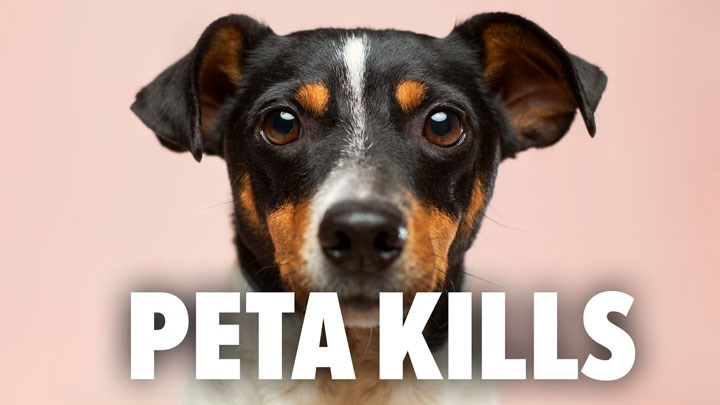
by Mark Chesnut - Monday, March 6, 2023

The hypocritical animal rights group People for the Ethical Treatment of Animals (PETA) loves to pontificate about how animals have the same rights as people. Consequently, when it comes to anti-hunting groups, PETA ranks near the top of the list of groups opposing all hunting.
In fact, the section on hunting on the PETA website states: “Hunting might have been necessary for human survival in prehistoric times, but today most hunters stalk and kill animals merely for the thrill of it, not out of necessity. This unnecessary, violent form of ‘entertainment’ rips animal families apart and leaves countless animals orphaned or badly injured when hunters miss their targets.”
While PETA management raises funds with its holier-than-thou attitude about all manners of animals, the group harbors a dirty little secret: It kills the vast majority of pets that people bring to the organization’s animal shelter in Norfolk, Va. Of course, people who surrender those pets do so fully expecting that with such a compassionate organization providing care the pets will end up in a good home—not a dumpster.
Just how many pets did PETA kill last year at its animal shelter in Virginia? Well, brace yourself. The number is staggering.
According to the annual report from the Virginia Department of Agriculture and Consumer Services, PETA euthanized 2,130 animals in 2022, including 718 dogs, 1,374 cats, 30 other companion animals, one “livestock” and seven “poultry.” The shelter took in a total of 2,886 animals last year, so a little simple math reveals a 74 percent death rate for animals entrusted to PETA’s care. Only about 3 percent of the animals surrendered to the organization were successfully adopted.
If that sounds outlandish, it is. But it’s just a drop in the bucket, according to PETAKillsAnimals.com.
Since that group began tracking the number of animals euthanized at the Virginia shelter, PETA has killed 45,330 pets rather than make the effort to find them good homes. For just one example of its track record, this NRA website ran an article back in 2016 documenting that PETA euthanized 1,411 cats and dogs that year.
Getting back to the group’s 74 percent mortality rate for 2022, that number is much higher than that of most shelters in the surrounding area. Private animal shelters in Virginia report that they euthanize at a rate of about 10 percent, more than seven times less than the “compassionate” and “ethical” folks at PETA.
Interestingly, PETA’s latest push is to end so-called “speciesism,” an imaginary term for people treating one species of animal differently than others. PETA’s whole gist is that all species are exactly the same—including humans—and PETA seems particularly interested in letting people know that rats and people are equal.
“If rats went to school, they would be straight-A students,” a recent PETA member alert said. “They excel at learning and have excellent memories, never forgetting how to navigate a route once they learn it.”
Of course, once everyone considers humans no longer “superior to other animals,” hunting any species could be equated to murdering another human being. It sounds crazy, but that’s what PETA believes.
Getting back to the thousands of innocent dogs and cats killed each year by PETA in Virginia, we must ask ourselves a question: So, what’s the deal? Does PETA really care about animals or not?
Looking at the issue, one can only conclude that PETA cares about animals when such caring is likely to line the pockets of its rich upper management with donations. But as for those unfortunate dogs and cats brought to its Virginia animal shelter each year by those hoping to save them, they’re simply nuisance animals that the organization would just as soon kill as put an effort toward saving.
About the Author
Freelance writer Mark Chesnut is the owner/editorial director at Red Setter Communications LLC in Jenks, Okla. An avid hunter, shooter and field-trialer, he has been covering Second Amendment issues and politics on a near-daily basis for over 20 years, previously serving as editor of the NRA’s America’s First Freedom.
E-mail your comments/questions about this site to:
[email protected]
Proudly supported by The NRA Foundation and Friends of NRA fundraising.
